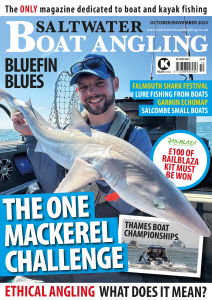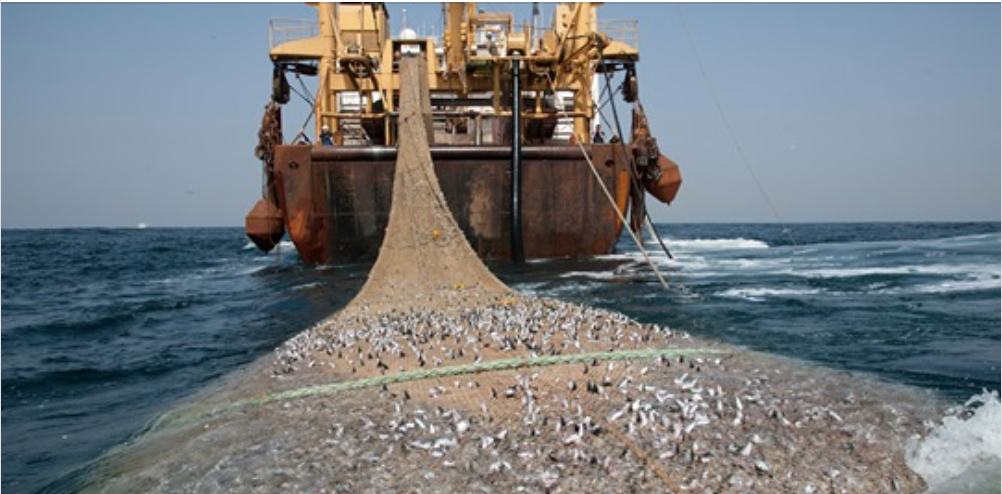A few months ago, angling centric social media platforms (and some conservation related ones too), were aflame with rage about the supertrawler Margiris (and its sister boat), working off the Isle of Wight hoovering up shoals of fish. At the time I wrote a blog trying to clarify some of the facts about these boats and their activity.
That, in itself, generated a lot of comment, not all of it complimentary I might add, and there a was a general thread demanding a ban on these massive boats working in British waters. I pointed out then that banning them in British waters at that time wasn’t rally feasible and would not save fish stocks as the activity would be misplaced. In reality, a much wider ban on these boats is needed.
Inevitably the subject has not gone away and now one or two conservation organisations, including Greenpeace, have become very vocal about this – and in turn anglers are again asking Why are these huge boats allowed to operate in the English Channel? Why can’t we just ban them?
Greenpeace claim, that an investigation they carried out “reveals 25 giant foreign-owned fishing boats spent 3,000 hours in protected British waters in 2019” and, in their news release, went on to claim the Margeris spent 99 hours in UK MPA’s off the South Coast.
There are other points of view however the Marine Stewardship Council, largely discredited after the scandal over their links with supermarkets was exposed, has released a document asking “Can a Supertrawler fish sustainably?” which seems to suggest they are a better vehicle for fishing than small scale boats (https://www.msc.org/en-au/what-we-are-doing/our-approach/fishing-methods-and-gear-types/can-a-super-trawler-fish-sustainably) They also published a blog by Megan Atcheson, the MSC’s Senior Fisheries Assessment Manager
In it she gives three reasons “Why bigger can be better” Put simply her argument is
- Large fishing vessels are able to stay out at sea for longer, fishing greater areas of ocean.
- Large commercial fishing operations are often more capable of implementing technological advances which support sustainable fishing
- Access to experts in fisheries management and marine science means that large commercial fisheries can respond to the latest science and information to ensure a sustainable level of fishing.
The is also the apparently reduced ecological impact of these boats – burning less fuel than a fleet of smaller less efficient fishing boats.
Biomass removal
However, this mainly refers to fishing in international waters and Oceanic fishing fleets. Its a very different thing fishing in a much smaller area of sea, like the English Channel, where stocks are localised. We simply don’t know what the effect of removing vast quantities of fish in one fell swoop from one relatively small area will be either on a long term or short-term basis – but I am pretty confident it’s not good. The sheer tonnage of biomass being removed like that must affect the whole of the marine ecosystem and not just where it had been operating.
Local communities and the pursuit of profit
There is another strong argument for banning these boats in European waters. Although large scale fishing fleets dominate quotas and the policies of governments around the continent (particularly in the UK) it is small scale local fishermen who should be given much more in terms of grants, quotas and government attention. It is these guys who are much more likely to be contributing directly to their local economies not least by selling their catch in local shops and restaurants.
Do we want cheap fish?
One of the reasons Supertrawlers have become prevalent is that consumers want cheap fish, mackerel, sardines, anchovies, herrings etc…and these massive boats are far more efficient at hauling in large scale catches quickly and, in many cases, processing, and sometime canning, them at sea so when they dock they’re not unloading wet fish but tins! So, we have to make a choice about whether we want cheap food or not.
Ultimately we anglers want to ensure that we can go out and have a reasonable chance of catching fish – sea angling, particularly in boats, is not a cheap sport and many like the idea of being able to occasionally take fish for the table something which commercial overfishing is making increasingly difficult. As anglers we are conservation minded, we put a lot of fish back, increasingly use more humane tackle and methods and avoid unwanted bycatch at all times so seeing massive ships which huge trawls working a few miles from the coast is dispiriting.
Environmental damage
There is a lot of talk about these massive boats causing widespread casualties amongst cetacians, sharks and other large marine animals that are following the shoals of fish being targeted. It seems logical that there will be a by-catch but do we have any data on how much this happens? What are these big boats doing to avoid it and is it really any worse that the thousands of fish and mammals caught in static nets and traditional trawls? There is also the question of what happens to an ecosystem when a large trawl removes an entire year group or a population of fish from an area – does it create an ecological hole which affects everything that feeds on, and is fed on by, these fish be they mackerel, herrings, scad, squid or whatever.
In the end the answer to all these questions is we don’t know – there is data about some of these questions but not enough to be confident that we can continue to allow these huge boats to continue to operate in European waters. It is time we stopped Supertrawlers from operating until we have the answer to these questions. The uncertainty about the effect they have on our oceans is too great to leave them to carry on as they are.
Here are some links to other related blogs and articles about this topic
Link: https://oceana.org/sites/default/files/reports/european_trawlers_destroying_oceans.pdf
Link… https://www.fauna-flora.org/news/supertrawlers-bad-marine-biodiversity 1 June 2020 – Daniel Steadman
Link: https://blogs.lse.ac.uk/businessreview/2016/05/28/dont-blame-the-eu-for-the-troubles-of-the-fishing-industry-in-the-uk/ Griffin Carpenter NEF 2014
Link:https://theecologist.org/2020/jun/18/ban-fishing-supertrawlers Michael Drummond The ecologist
18th June 2020
Link: https://www.oceanographicmagazine.com/news/supertrawlers-uk-mpas-2019/
The Oceanographic



